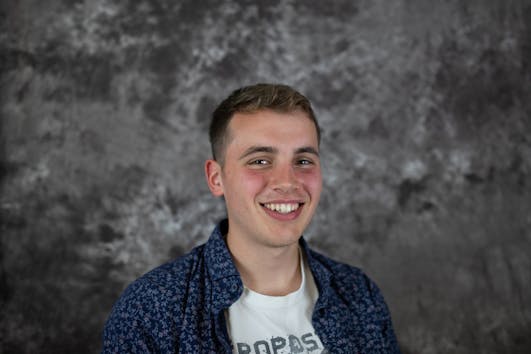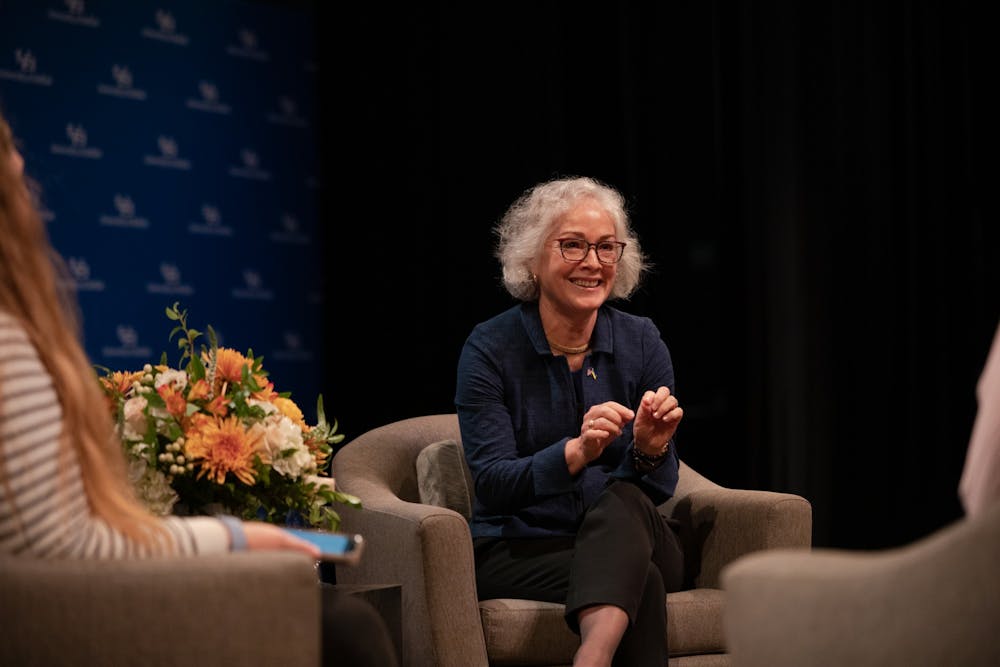Few Americans knew who Marie Yovanovitch was prior to her testimony before Congress during then-President Donald Trump’s first impeachment inquiry. She told the assembled lawmakers that Rudy Giuliani, then Trump’s personal lawyer, and a corrupt Ukrainian worked to smear her and eventually pressured the U.S. State Department to remove her from her post. This led to the House’s vote to impeach Trump and prompted the 45th president to criticize her on Twitter as she spoke.
But the testimony that launched Yovanovitch into the headlines was simply the last chapter in a 33-year-long career in the State Department. Yovanovitch worked for six administrations and served as the U.S. ambassador to Kyrgyzstan, Armenia and Ukraine.
Yovanovitch sat down with The Spectrum before her appearance as part of UB’s Distinguished Speaker Series to talk about testifying during Trump’s first impeachment, her time with the U.S. State Department and what retirement has brought:
This interview has been edited for length and clarity.
The Spectrum: You were a pretty prolific ambassador in Eastern Europe across three administrations, and Eastern Europe is probably the most interesting place to be an ambassador today. Do you still wish you were at the State Department or are you happy to let other people take the helm there?
Marie Yovanovitch: “Well, I had a great career for 33 years. And so I think, now it’s time for the next generation to take over and move forward. Maybe even some of you guys are thinking about careers in Foreign Service — I hope you are.”
TS: After Trump’s first impeachment, you went to therapy and it seems like you went through a long period of self-reflection. What was that period in your life like for you?
MY: “There’s no question that 2019 was the worst year of my life, both personally and professionally. And really, there was a lot of gaslighting going on too, where there were full-on, kind of attacks on me and people saying lies about me. You start to wonder, ‘Did I somehow do something wrong?’ It was — I think you’re right — a period of self-reflection and trying to find [out] what your strengths are, and how you can move forward, and how you can build your resilience. I’m happy to report that I did come through the other side of all that. And writing the book actually also really helped. I’m not a writer, obviously, and I found it to be a very difficult process. I have to say, it really increased my respect for authors because I love to read, and I had no idea how difficult the whole process is. Writing, especially a memoir, you see the patterns in your life, you see the patterns actually in your family’s life as well. It was really quite a process and very interesting, but also hard.”
TS: So speaking of your book, in that you talked about how the State Department was trying to keep you from testifying to the House, and there were other people who were trying to prevent you from testifying. What made you decide to ultimately go through with that?
MY: “Foreign service officers, like all government employees, swear an oath to the Constitution, to defend and protect the United States from all enemies, foreign and domestic. That’s something that you do right at the beginning when you start, and we don’t talk about it a lot, but it’s something that is very important to all of us. We are serving the American people, we are serving the sitting president and his or her foreign policy and domestic policies. But we are also serving something bigger, which is our Constitution, our enduring values. That kind of guided me through that process. Even though, my whole life, I’ve been pretty much what I call a ‘Rules Girl’: this is the way the State Department does things and I kind of followed that. But in this final chapter of my foreign service career, ironically, I felt that what the White House and the State Department were asking me to do was wrong, because the investigation that Congress was conducting, which then ultimately became the impeachment investigation, was a completely constitutional and legal process. I felt that I didn’t have a lot to contribute in terms of my knowledge, because the things they were investigating were primarily things that happened after I departed Ukraine.
“But nevertheless, if the Congress wanted to hear from me, I felt I owed it to Congress and to the American people to come forward. It was not an easy decision, because it was very frightening. I’ll remind you that around that time, the transcript of the former president’s phone call with President Zelensky, came out. That was what President Trump calls the ‘perfect phone call.’ In the perfect phone call, he talks about ‘that woman’ — me — and criticizes me. Then he says, ‘She’s gonna go through some things.’ So, even as Congress was asking me to come and testify, this comes out. And it made me wonder, ‘What kinds of things am I gonna go through, especially if I testify?’ Is there going to be retaliation — or worse? And so, it was a difficult process, but again, it just felt to me that just as when a Republican Congress had called Secretary of State Hillary Clinton to testify for hours on the Benghazi investigation, this was no different. This was a similar process. It was constitutional, it was legal, and I had sworn an oath to the Constitution. I felt I had to do my duty.”
TS: So you’d been a Foreign Service Officer for almost 35 years. What’s your most interesting story from your career in the State Department?
MY: “One of the things that we did when I was ambassador in Kyrgyzstan is, we had an exchange. And Kyrgyzstan is a nomad culture, historically, and they still have a big cowboy culture there. There’s lots of similarities with our own cowboys from the American West. So we brought some cowboys from Wyoming, and they were going to do a rodeo together. First the American cowboys and the Kyrgyz cowboys, and then they were going to do things together. This was in the city of Oshkosh, which is in the Fergana Valley, where Tajikistan, Uzbekistan and Kyrgyzstan all meet, and so there’s a real blending of cultures. The mayor had invited a number of people for a lunch beforehand, including the Russian consul.
“Out comes this amazing feast, and of course, the pièce de résistance is a whole lamb, including the head. And because I was the honored guest, I got one of the eyeballs, and the other eyeball went to the Russian consul. So the Russian consul who — you know, this was literally not his first rodeo. He takes that eyeball, and he pops it into his mouth, downs it with a shot of vodka, and then he looks over at me and he smirks. And I’m thinking, ‘Oh God, what am I going to do?’ And, I have to say, I did not represent our country very well. I kind of pushed it under the lettuce leaf and piled up rice on top and hoped everybody would forget. It was kind of a disaster, but there’s some things I just won’t do for my country, and that was one of them.”
TS: Who are your heroes and why?
MY: “There are a lot of different people for a lot of different reasons, but when I was growing up, Martin Luther King and Bobby Kennedy Jr. were big. That was the ‘60s, and they were very influential on a very impressionable little girl. There were so many issues going on, which we would now call social justice. And these were people who were fighting — fighting in a non-violent way, I should make clear — for the rights of all Americans, and that really made a huge impression on me. They too were trying to make America the best that it could be, and that was something that made a big impression on me when I was growing up.”
TS: What has your retirement been like since leaving the U.S. Foreign Service?
MY: “Well, it’s been really busy actually. It’s not the way I would have imagined it. I retired in January of 2020, and then, of course, COVID-19 hit, but I also started writing the book at that time. Maybe in some ways, it was good to have that enforced isolation where you have time to reflect and write and so forth. That was a process that took about probably a year and a half. Then the Russian buildup around Ukraine started, and on Feb. 24, the Russians invaded, and I started doing some media on that. Then, several weeks later on March 15, my book came out, so there was a lot of media attention to that. I was glad because not only did it enable me to promote the book, but also to talk about Ukraine, and why the war in Ukraine is important, not just to the Ukrainians, but to us — why it is in our national security interests to help Ukraine win this fight. That’s pretty much continued since then, and now I’m able to talk to student groups like I am tonight in Buffalo. So yeah, I’m pretty busy. I’m traveling every week talking to different groups.”
Grant Ashley is the managing editor and can be reached at grant.ashley@ubspectrum.com
Victoria Hill is an assistant news/features editor and can be reached at victoria.hill@ubspectrum.com

Grant Ashley is the editor in chief of The Spectrum. He's also reported for NPR, WBFO, WIVB and The Buffalo News. He enjoys taking long bike rides, baking with his parents’ ingredients and recreating Bob Ross paintings in crayon. He can be found on the platform formerly known as Twitter at @Grantrashley.





